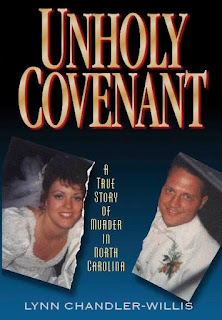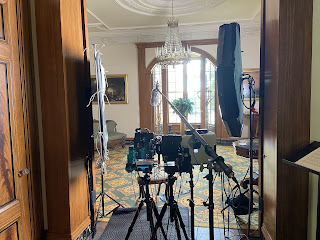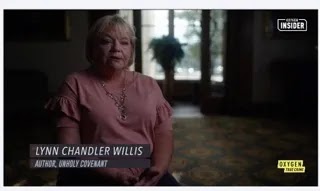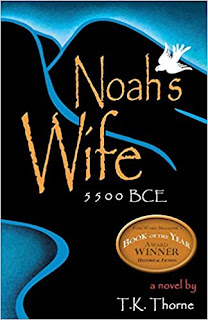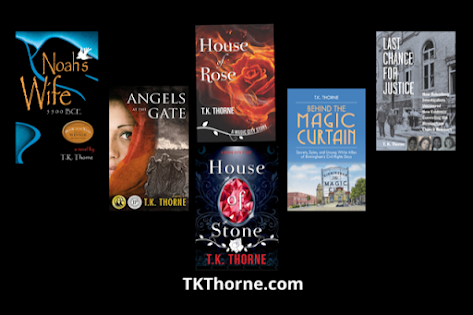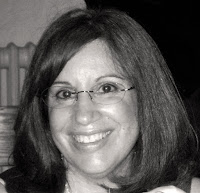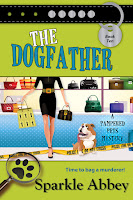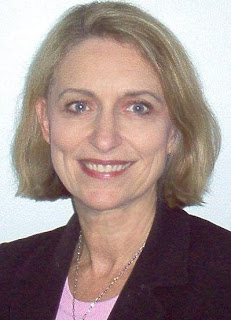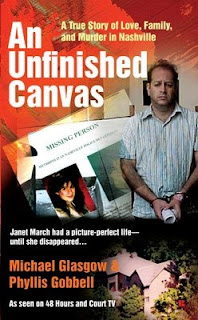The Truth About True Crime: Why I’ll Never Write One Again by Lynn Chandler Willis
My first book was a non-fiction account of a headline grabbing murder that happened in my own small town. As the owner, publisher, editor, ad sales (and design) and distribution manager of a small town newspaper, I covered the murder extensively, and often exclusively, in the paper. Although the paper started small, we had a 13-year run and closed with a circulation of 10 thousand plus. Not too bad for an ad-supported bi-weekly newspaper.
This murder was the only one I ever covered in the paper. The victim was a much-loved 28-year-old woman born and raised in the community. A devout Christian, she was very active in her church. In the thousands of hours of interviewing friends, family, witnesses, and co-workers not a single person said one negative things about Patricia Kimble. She was an all around good person whose family roots ran deep in the community. Her killer was––in keeping with true crime nature––her husband, but with a twist. Her husband hired his younger brother to kill her with the promise of a share of the $100,000 dollar life insurance policy the husband had just recently taken out on his wife. Ladies––if you’re reading this––a payout increase in a policy, a new policy when you’re already insured, these things are red flags.
The brothers were also part of the community. Although their family roots didn’t run deep like Patricia’s, the boys grew up in town and their father was the minister at one of the local churches. We are talking about the bible belt so at any given crossroads, there was a Baptist church on one corner and a Methodist one on the other. So yes, the brothers, Ted and Ronnie Kimble, were preacher’s sons.
Ronnie (the younger brother) followed through with the murder. He shot his brother’s wife in the head then set her body on fire.
I sat through every single day of Ronnie’s six-week trial, furiously scribbling notes and interviewing friends and family of Patricia’s. The Kimbles were reluctant to talk. I watched home movies of Patricia’s childhood while sitting in her father’s living room. I devoured each page of her diary her mother entrusted others with.
The book, Unholy Covenant, was published in the year 2000. My local Barnes & Noble hosted a book
release. Three television stations and an estimate of over 200 people showed up. It was standing room only. Many of the faces I recognized. Many I didn’t and that was unnerving. By this time, the Kimble brothers had their own “following” of loyal fans proclaiming the brothers’ innocence. The entire time I was at the podium taking questions about the book, I was waiting for a Kimble follower to throw out a question, or worse.
The book sold well and continues to this day with close to 60-thousand copies sold. People started contacting me and asking if I’d write about their own experience with a murder that hit their own family. An uncle was murdered and the cops never investigated, they’d say. What they didn’t say was the uncle was a known drug dealer and although the cops did investigate, they had no evidence. Sorry about your uncle but his death isn’t dramatic enough. Or the woman whose son was shot down and killed in his own driveway by his estranged wife. Sorry, but your son’s type of murder happens every day. Nothing really headline grabbing there. Can you imagine telling a grieving mother her child’s murder isn’t compelling enough to fill 300 pages? I’m sorry for your loss but it’s just not that interesting.
The first producer contacted me shortly after the book was released. He envisioned a feature-length movie. And Patricia wouldn’t be a boring leasing manager like she was, she’d be an elementary school teacher because who doesn’t love an elementary school teacher? And the lead investigator would need to be a rookie, not a veteran detective. I didn’t accept his offer and nothing ever came of it.
After that, every few years a new round of producers would call. Lifetime TV, 48 Hours, Discovery Channel, and so on and so on. Would I mind contacting Patricia’s mother and her brother, they’d ask. It’d be great to have them on camera, again!
Patricia’s mother and her brother agreed to the first few requests. After all, the producers would tell them, it’s keeping Patricia’s memory alive. I began to wonder how Patricia was ever going to rest in peace if we kept revisiting the horrible crime every few years? How was her sweet, soft-spoken mother supposed to move on when the new batch of true crime docu-dramas and podcasts made the rounds?
It was maybe ten years ago, maybe more, that I sat with Patricia’s mother in her tiny, single-wide trailer, both of us sweating from the heat of the lights, and watched her quietly cry. Her daughter had been dead for several years by this time and the murderers were in prison for life, but here we sat forcing her to relive every second of the worst day of her life. Cut, the director would say, this time I want you to look directly at me and say it with a little more anger in your voice. Can you do that? You’re doing great by the way.
More tears.
The next time a producer reached out I told them upfront I wouldn’t contact Patricia’s mother for them. And I added that I doubted she’d want to participate. I was right and the project was scraped. A year or so ago, another producer contacted me and I actually recognized his name and some of the shows he’d been involved with. His IMDB credentials were impressive. It took me two weeks and a second email from him before I replied. The show was going to be based on my book, Unholy Covenant, and they were going to use passages from it, mainly the diary entries. I reluctantly agreed to participate because I liked the storyboard and how it would be presented. I told the producer to contact Patricia’s mother and tell her what was planned, and if she ok’d it, we could move forward. He came back a few days later and said Patricia’s mother told him she didn’t want to participate in this one but she wished us the best, and gave her blessing to the project. And I was ok with that.
I did the show with a clear conscience. It’s on the Oxygen Network and called Killer Siblings. A ridiculous title but aren’t they all? Killer this or killer that. Murder here, murder there. I’m so sorry for your loss but can you cry a little more for the camera? I get that your son was murdered but publishers and producers are looking for the stories that make the headlines. I get that he was well liked, a real good guy. But did he feed the homeless? Did he volunteer for Meals-on-Wheels? Did he transport rescue dogs up and down the east coast? No? Oh, I see. He was your average guy.
He was just a victim.
Here’s the link to the Oxygen Network’s show Killer Siblings: The Kimbles. It’s from Season 3, episode 2.
https://www.oxygen.com/killer-siblings/season-3/episode-2/kimbles

